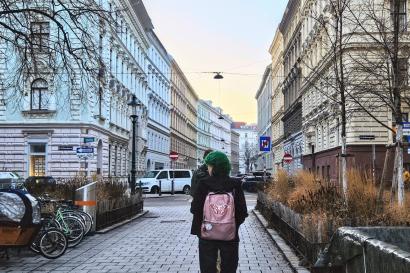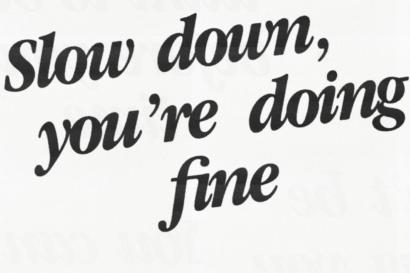The time has come: my last blog post. Please enjoy a final speed round of observations about Argentine society and culture I have compiled over the past four months.
- Machis-NO: Argentina is home to the most psychotherapists per capita in the world, therefore it’s quite ironic that none of these mental health professionals have managed to solve the problem of machismo thus far. Sexism and all the sinister bonus problems that come with it- like femicide and catcalling- is still a major problem in Argentina. So it begs the question: how has the country with the most psychotherapists not managed to crack the psychological code behind machismo? What in the world are all these psychotherapists doing while a woman dies every 31 hours in Argentina due to gender-based violence? Puzzling, sad, and highly ironic.
- City of Dog: Dog fashion is a major industry in Buenos Aires. The dogs of the city are outfitted in designer brands; fluffy pups in Adidas sweatshirts and jeweled collars cruise the streets, trailed by their equally fashionable owners. I witnessed the same trend while abroad in South Korea, a country that decided that investing in social welfare was too frivolous and decided to pour that money into dog fashion instead (okay, not really, but it’s true that the social welfare system in Korea is nearly nonexistent and the dog fashion is out of control, but I digress…). I’ll be the first to admit that I spoil my own pets, but let’s agree that there’s a difference between an extra bacon-flavored treat awarded to a well-behaved pet and dressing your dog in leather booties and a bejeweled hoodie so that it resembles a twenty-something with low self-esteem and “daddy issues”.
- I Balk the Line: Road rules are more of a ‘suggestion’ than actual regulations. Lane markers are entirely ignored by traffic; an unmarked road would be just as effective for regulating the flow of traffic. Honestly, painting the roads is such a waste of money that if Argentina took all the money that they have spent on paint for their roads and saved it instead, they probably would have had enough money to bail themselves out after the economic depression of 1999. The complete lack of road rules makes each car ride an exciting excursion simply because you never know if your final destination will be the one you originally planned or the hospital. Buses are a bit safer, simply because their size makes them hard to run over, unlike like the little tin boxes (i.e. 1970s-era Fiats and Renaults) that cruise the roads of Buenos Aires. Seatbelts are baffling optional, but in my (obvious) opinion, always a safe choice.
- El Almuerzo Infinito: Lunch breaks at work stretch beyond an hour. During my time in Argentina, I had an incredibly rewarding experience as an intern and learned a great deal about Latin American business practices. The most striking of all the cultural differences, however, was the length of the lunch break enjoyed by my coworkers. Every day, between the hours of 1pm and 3pm, the office would empty out completely and I would be left spinning in my chair (read: working productively while unsupervised) as my coworkers embarked on what must have been quite the odyssey to procure lunch. During the four months of my internship, I do not believe I saw anyone return to the office in less than an hour. While this might be considered “slacking off” in the United States, in Argentina a long lunch break is simply that- a well-deserved break- from the humdrum routine of office life and anything less than an hour away from the office would be considered unnatural.
- The Buzzing Hive of Recyling Bees: Cartoneros, as unique to Argentina as mate and tango, are men and women who in the wake of the economic disaster of the new millennium took over the responsibility of collecting, sorting, and delivering recyclable materials to sanitation plants. When I first arrived in Buenos Aires, I naively assumed that the people rooting through the massive waste receptacles that line the city streets were homeless- looking for leftover food or perhaps some salvageable items that could be repurposed or sold. Instead, it turns out they are members of one of the many recycling cooperatives that provide a source of income for over two thousand residents of the greater Buenos Aires area. As the government maintains contracts with private waste collection companies, the cartoneros are forced to compete for territory; nonetheless they are a hallmark of Buenos Aires and can be seen on any given day marching tirelessly through the streets, dragging literal tons of recyclables in their wake.
There you have it. With the submission of this blog post, my final semester of university has officially reached an end. I AM AN ADULT. Time to go do my taxes or weasel my way out of jury duty or get trapped in a loveless marriage until my best years are gone or whatever adults do.
Totally kidding. I just can't help but end with some dark humor. Thanks for reading! It's been fun.
XX

Catherine Seltz-Drew
<p>My name is Catie Seltz-Drew. I am currently a junior pursuing a degree in International Studies. My semester in Buenos Aires will be my fourth experience abroad following a year in Italy in high school and two previous semesters abroad in Rome, Italy and Seoul, South Korea while in college. I have a passion for cooking and eating; I love learning about a country through its cuisine. After my semester in Argentina, I will graduate from Loyola and hopefully continue to travel and eat my way around the world.</p>







